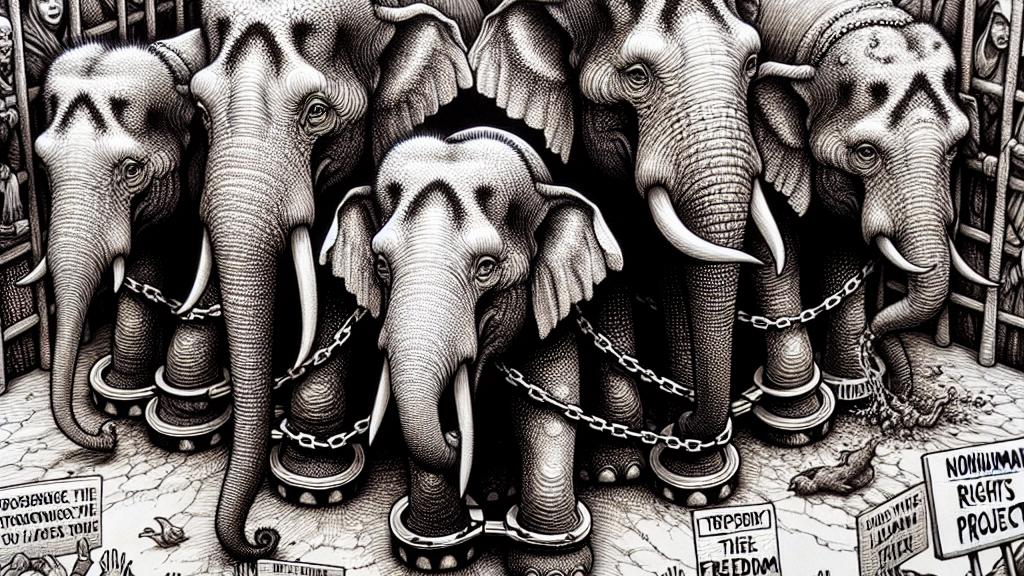The Legal Battle for Elephant Rights in Colorado
Overview
- Colorado court may redefine the legal status of elephants, examining their rights as sentient beings.
- The NonHuman Rights Project fights for the liberation of captive elephants, likening their situation to imprisonment.
- A ruling in favor of elephant rights could inspire a broader movement for animal legal protections.

Overview of the Case
In a remarkable legal showdown brewing in Colorado, the state's highest court is poised to decide an unprecedented question: Can elephants hold rights akin to those of humans? The case centers on five elephants—Missy, Kimba, Lucky, LouLou, and Jambo—who have spent decades in confinement at the Cheyenne Mountain Zoo. Supporters argue that these gentle giants, renowned for their intelligence and intricate social bonds, are suffering greatly in their restrictive environment, which denies them the freedom to roam and express their natural behaviors. Advocates from the NonHuman Rights Project assert that the current captivity of these elephants mirrors imprisonment, and it raises crucial ethical considerations about our role as guardians of the Earth’s creatures. This case not only challenges existing legal definitions but also invites a reexamination of how society perceives nonhuman lives.
Arguments for Elephant Rights
The NonHuman Rights Project compellingly argues that the elephants' plight illustrates a gross injustice, with attorney Jake Jarvis stating, "They suffer emotionally and physically without hope for change." This poignant declaration emphasizes that their detention is not just a matter of legality, but a profound moral failing. Thinkers like Jeremy Bentham have argued that the capacity to suffer is the cornerstone of moral consideration. He provocatively posed, "Can they suffer?" If so, then they should be afforded rights that protect them from harm and exploitation. In tandem, Peter Singer’s philosophy of equal consideration supports the notion that, while elephants cannot articulate their grievances as humans do, their emotional and social complexities merit respect and rights. The parallels drawn between human rights and animal rights are not only compelling but demand urgent action from society to address the injustices faced by sentient beings.
Potential Implications of the Ruling
As the Colorado court deliberates this pivotal case, its ruling holds the potential to ignite a transformative movement in animal rights advocacy across the country. If the court grants legal personhood to elephants, it could establish a ripple effect, encouraging similar pursuits for other captive animals, from dolphins in aquariums to primates in labs. Such a decision would challenge the status quo of speciesism, a bias deeply rooted in societal attitudes, and could reshape our understanding of ethical treatment towards nonhumans. As PETA founder Ingrid E. Newkirk passionately advocates, "When it comes to suffering, a rat is a pig is a dog is a boy.” This powerful sentiment serves to remind us that every creature deserves dignity and respect. Ultimately, this legal battle for elephant rights transcends the courtroom; it is a call to elevate our moral compass, urging society to embrace compassion and advocacy for all living beings, with the hope of fostering a world where empathy triumphs over exploitation.

Loading...